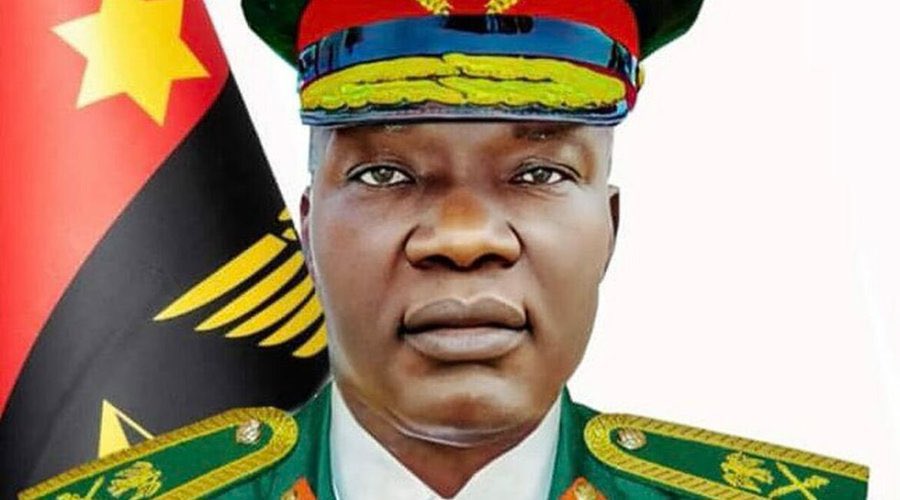President Bola Tinubu announced the passing of Chief of Army Staff, Lt. General Taoreed Abiodun Lagbaja, at the age of 56. The announcement came via a statement issued by the President’s spokesperson, Bayo Onanuga, revealing that Lagbaja died on Tuesday night in Lagos following a period of illness that had kept him away from public duties.
The unexpected death of one of Nigeria’s top military leaders has sent shockwaves through the nation, resonating particularly within the corridors of the Nigerian Armed Forces. President Tinubu expressed his heartfelt condolences to Lt. General Lagbaja’s family and colleagues, highlighting the significant role he played in safeguarding the nation’s peace and security.
“We extend our sincere sympathies to the family of Lt. General Lagbaja, who dedicated his life to the service of this great nation,” President Tinubu stated. In an emotional tribute, he continued, “His commitment to ensuring the security of Nigeria will be remembered, and we ask for God’s mercy upon his soul and comfort for those he has left behind.”
Lt. General Lagbaja’s career was marked by steady advancement through the ranks of the Nigerian Army, culminating in his appointment as the Chief of Army Staff. He was widely respected for his leadership skills and strategic acumen, which were particularly crucial during a time of heightened security challenges in Nigeria, including insurgencies and banditry.
Born in Osun State, Lagbaja’s military career began with his commissioning as a Second Lieutenant in 1990. Over the years, he garnered extensive experience in various command and staff positions, becoming a respected figure within military and governmental circles alike. His leadership during significant military operations has not gone unnoticed, and he has received multiple accolades for his service.
The Chief of Army Staff was also known for his engagement with communities affected by conflict, as he believed in building trust and partnerships between the military and civilian populations. Colleagues describe him as a leader who was not only focused on military strategy but also deeply humanistic in his approach to addressing the root causes of insecurity. His efforts in promoting peace and collaborating with other security agencies highlighted his understanding of the complexities involved in national security.
Within hours of the announcement of his passing, tributes began pouring in from both military personnel and civilians, mourning the loss of a dedicated officer. Many took to social media platforms, sharing memories and expressing their gratitude for his unwavering commitment to the nation. “His leadership was extraordinary, and his understanding of security challenges was unmatched. We have lost a true patriot,” one military officer remarked.
Political analysts believe that the death of Lt. General Lagbaja may pose significant challenges for the Nigerian military as it navigates various security crises, including the persistent threats from terrorist groups, the proliferation of arms, and inter-communal violence. The immediate focus will likely shift to appointing a capable successor who can continue the work Lagbaja started and maintain stability within the armed forces.
As Nigeria grapples with these pressing security challenges, many hope that Lagbaja’s legacy will inspire a renewed commitment to addressing these issues with urgency and effectiveness. His vision for a unified and secure Nigeria remains a guiding principle for the military, which has been under scrutiny for its performance in recent years.




